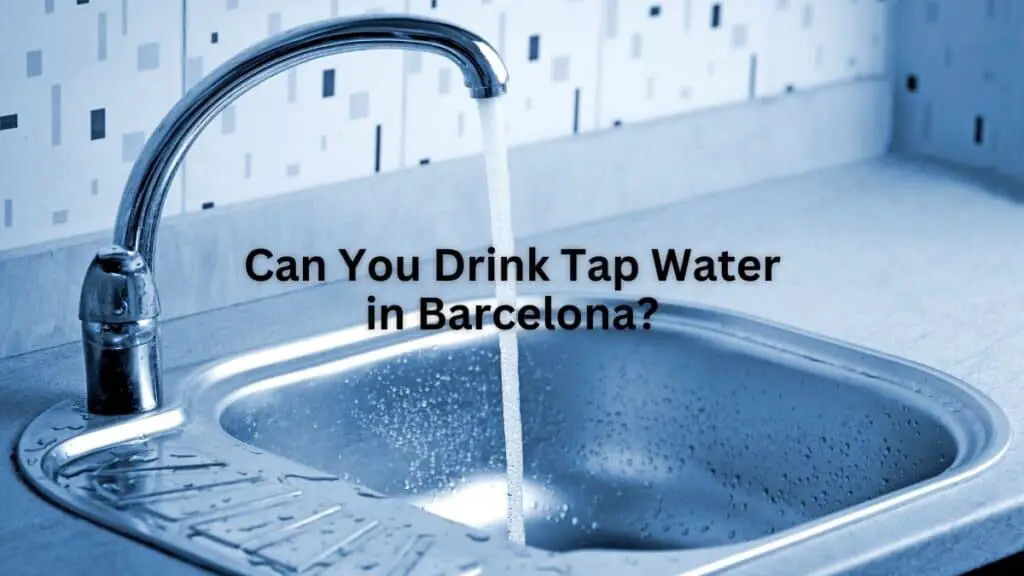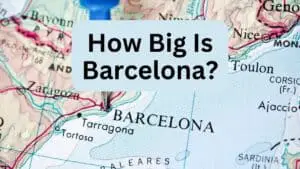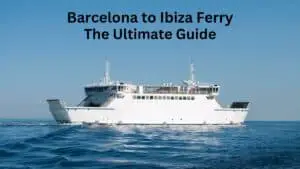Water is one of our first concerns when traveling to a new place. Access to clean, safe drinking water is essential, so we always look for good sources. Barcelona may have tap water that is safe to drink, but you may wonder if it is the same throughout the city.
While tap water is available in Barcelona, avoiding drinking it without filtering is best. Although it’s generally safe to drink, it may taste different from regular water. As such, it’s best to drink only filtered tap water while visiting the city.
Tap water is undoubtedly used for simple washing and bathing. Nonetheless, tap water should not be used for food-related purposes for safety reasons. It’s always best to use purified, filtered, or bottled water when eating, drinking, or cooking.
In this article, we’ll cover everything you need to know about tap water in Barcelona and its other safety concerns. As a result, you will avoid water-related problems and know how to get around.
Without further ado, let’s get into it!

Can You Drink the Tap Water in Barcelona?
Barcelona’s water might not taste great, but according to Aigües de Barcelona and the General de Sanidad, it’s perfectly safe to drink. Besides all the health standards set by international organizations, the city’s water is regulated by the EU and the World Health Organization.
In short, you can always drink the tap water in Barcelona. However, drinking bottled or filtered water is safer if you have a sensitive stomach.
Of course, if you don’t have any options, tap water will be alright. However, it’s also best to have your filter to help make the water cleaner and safer.
Source of Barcelona’s Tap Water
Barcelona’s tap water comes from two sources, the rivers of Ter and Llobregat. The city also has Europe’s largest desalination plant, capable of handling 20% of its water needs.
The city built a saltwater facility after the 2008 water shortage, but it is rarely used due to its high operating costs.
Since Llobregat passes through very salty areas around Zuria, it contains high potassium, magnesium, and carbonate levels.
Llobregat water tastes good before Suria, but it becomes very salty afterward. Further, the river is also polluted by industrial and agricultural debris.
Most salinity and contaminants are removed from water using osmosis, which is expensive. As a result, the water tastes sour due to high chlorine levels, which protects it from contamination before it gets to the faucet.
Is It Safe to Drink Tap Water in Barcelona?
According to water regulators and scientists, it’s safe to drink tap water in Barcelona. You can generally drink it, but describing how it tastes is challenging. Mineral content and chlorine are the leading causes of bad taste.
A common myth is that hard water causes calcium deposits, causes kidney stones, and other health problems. However, there is no scientific evidence that this is the case.
You may be better off drinking tap water than bottled water. It is drinkable by all international standards, including the European Union and the World Health Organization.
Anecdotal evidence suggests that people who moved to Barcelona from places with good water experienced stomach upset in the first few months. Those with sensitive stomachs may have problems with it.
In short, you can drink tap water in Barcelona if you’re used to drinking tap. However, if you have a sensitive stomach, drinking bottled or filtered water is best to ensure safety.
What to Know About Tap Water in Barcelona?
The tap water in the Barcelona water network is generally considered safe to drink. However, there are still two potential issues to be aware of:
It May Contain Microplastics
Microplastics have been detected in over 80% of European tap water, so you’re prone to consuming them. However, despite knowledge of microplastics in your neighborhood’s tap water, Aigues de Barcelona must acknowledge their extent. According to WHO, microplastics in tap water are significantly lower than bottled water and pose no health risks.
It May Have Gone from Corrosion or Leeching
Water utilities have yet to test your building, or our home, for corrosion and leaching contamination, which can cause tap water contamination. Among them are copper, iron, bioplastics, and biofilms.
Although it’s not common, it does happen sometimes, but it’s usually noticeable because the water turns brown/yellow after a while.
An affordable water filter is the best way to protect your tap water. With this filter, you get better-tasting water, save money, have drinking water at your fingertips, and reduce plastic waste.
Is It Safer to Drink Bottled Water Than Tap Water in Barcelona?
Even though bottled water tastes better, there is evidence that it causes you to get sick more than tap water. Many people became sick as a result of the contamination. Therefore, drinking filtered tap water is safer and healthier than bottled water.
Plus, bottles are bad for the environment and can contain microplastics. A recent study found that 93% of bottled water contained microplastics.
However, less than 50% of plastic bottles and less than 20% of new bottles are recycled, even though 80% of Spanish households claim to recycle plastic bottles. It is made of plastic.
Additionally, bottled water has a high carbon footprint when it is shipped, as well as when it is produced and recycled.
The average cost of bottled water is €280 per year, not to mention the hassle of carrying a heavy bottle home weekly. So the bottom line is that you should avoid bottled water if possible.
Conclusion
Tap water in Barcelona is generally safe for consumption, but it’s best to have a filter to ensure its safety. One thing to note is that the tap water in the city may taste poorly. However, studies show that this water is safer than commercially bottled water. You can buy some handy water filter bottles to improve the taste. However, if you’re used to drinking bottled water, it’s best to avoid such and prefer tap or filtered water.



